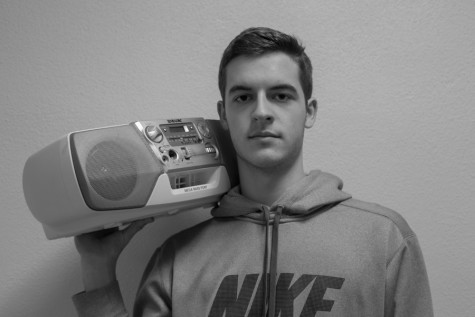Incorporate productivity into end of senior year
School should establish academic end-of-year program for seniors
June 7, 2016
At the end of the school year, high school seniors are at a point in their life when they are about to take a course unique to them. Each are going their own direction and are at different stages of planning their next step, but all are still counting the days until graduation.
However, at Park, many seniors are in the same boat during the last few weeks of school: stuck in a classroom with little to no material left in the curriculum. Since attendance is still required, those in class resort to spending more time on their phones, or even sitting in silence.
While an academic break after a long school year isn’t always a bad thing, having students waste their time in school isn’t the best way to end a school year. If the school is going to require attendance for seniors, there should be programs that engage students and allow them to use their time effectively.
Edina High School provides students with a program called May Term at the end of the school year. This is an opportunity to take a six day course in an area of academics that interests them which might not be offered as a course at the school, according to the school’s website.
Course offerings range from ‘Relaxation through Coloring’ to ‘Ice Hockey Theory,’ and are all taught by teachers on campus. For seniors who have completed IB or AP testing or those who simply don’t have finals in their classes, learning new, more interesting material is a way for seniors to use the last few days of school productively.
Programs at other schools, like the Senior Program at The Blake School, is similar to that of Edina. It gives seniors the opportunity to create their own academic project at the end of the year. Once approved by the school, students complete their program whether they involve internships, classes or travel instead of sitting in a classroom doing close to nothing.
These organized programs are not only academically stimulating, but also push students to dive into areas of academics outside of a regular curriculum, often areas that interest them more, and cause them to be self-sufficient in their learning.
Encouraging students to find what they are interested in is much more valuable than watching movies or playing on a phone for two or three weeks. Park should find a viable way to engage its seniors in a meaningful and productive way at the end of every school year.
Instead of encouraging students to show up to an empty classroom, it should encourage students to come up with volunteer projects, look for internships or encourage teachers to lead workshops on academics they are interested in outside of the regular curriculum.
While it may not save every senior from the steep slide of wishing it were summer, these programs will still give students the opportunity to use the time at the end of the school year productively and leave positive final memories for their academic career at Park.



